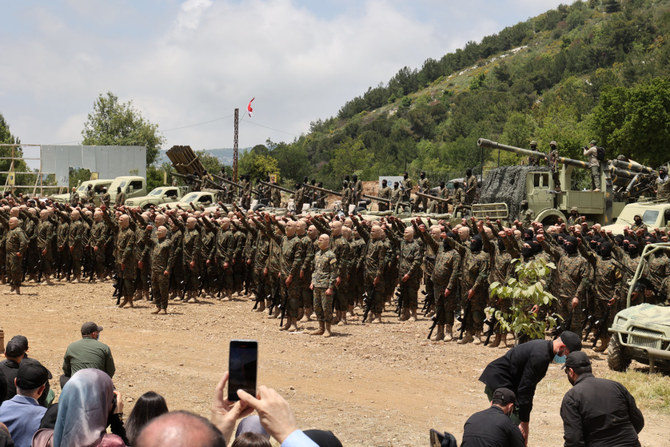Dr. Dania Koleilat Khatib
President Recep Tayyip Erdogan visited the Gulf this week, marking a new chapter in Turkiye’s relations with the region. Turkiye’s rapprochement with the Gulf is part of an overall trend of de-escalation. In April, Iran and Saudi Arabia signed a Chinese-brokered agreement to restore diplomatic ties. However, the key question is how can this rapprochement lead to stability?
In addition to the spoilers mentioned in my previous article that have an interest in shattering this rapprochement – Israel, radical forces in Iran and a potential Donald Trump return to the White House in 2024 – our experience in the region shows that periods of de-escalation tend to be short-lived. Following the defeat of Saddam Hussein, the relationship between Saudi Arabia and Iran was acceptable, as Iraq was the new common enemy. Iran had been contained by Martin Indyk’s “dual containment” policy. However, the situation was reversed with the US invasion of Iraq, as Iran became emancipated and returned to posing an existential threat to Saudi Arabia, as it did following the eruption of the 1979 revolution.
My question is how come this de-escalation was reversed overnight? The answer is simple: Because the de-escalation was based on one party being suppressed (in this case Iran), which relieved the other party. It was not based on mutual security guarantees. Hence, Iran immediately adopted an offensive attitude once it had the opportunity to break the isolation imposed by the Americans. If, during the decade that followed the first Gulf War, the Gulf had worked with Iran on establishing mutual trust and put in place mutual security guarantees, the situation would have been different after the fall of Saddam and definitely following the Arab uprisings.
We have to remember that the various countries all face existential threats. Gulf countries face the threat of Iran, but also some see in the Muslim Brotherhood movement a domestic threat. Similarly, Turkiye sees a threat. The 2016 attempted coup heightened Ankara’s sense of insecurity, as its modern history had already witnessed four coups. The most recent, in 1997, took place against the government of Necmettin Erbakan, who was removed by the military amid international complacency. Similarly, Iran is constantly facing an existential threat. Regime change in Tehran has been brought up several times since 1979 in the American political discourse. The Iranians also perceive the Gulf’s support of Iraq during the Iran-Iraq War as an attempt to break their country. Therefore, there is mutual distrust and mutual threat, and the first step is a change of mentality.
We need an “Ostpolitik” (politics of the east) mentality. This was the policy adopted by German Chancellor Willy Brandt in 1969. It was a break from the previous policy that called for German self-determination and reunification. It accepted and recognized the German Democratic Republic (known as East Germany) and the Oder-Neisse line. This policy brought with it a new thinking, which accepted the status quo and abandoned the regime change mentality. If everyone in the Middle East was to buy into such thinking today, then it would lead to de-escalation. Saudi Arabia would accept Turkiye and Iran just as they are and vice versa. Ostpolitik led to several treaties that broke the ice between the Eastern and Western blocs; agreements that facilitated the lives of people who were displaced during the Second World War. The first agreement was the 1970 Treaty of Moscow, which recognized the prevailing European borders. Hence, the key is to come up with general principles that can bind the different states and then migrate toward operational agreements. An Ostpolitik mentality is needed for Turkiye, Iran and Saudi Arabia to streamline their differences.
Instead of using their influence in the different countries to compete with each other, they should use their influence to devise solutions that bring stability, which everyone can benefit from. These agreements should be based on good governance, the rule of law and economic development. Any platform that gathers the three regional powers – Saudi Arabia, Turkiye and Iran – should adopt values that can enforce mutual trust, hence promoting cooperation and multilateralism. The worst possible outcome from this rapprochement would be to adopt the trade-off approach.
Not long ago, in the course of the debate over the Lebanese presidency, the general discourse was circulating the idea that Iran would pressure the Houthis to stop attacking Saudi Arabia in return for the Kingdom allowing Iran to have a free hand in Lebanon. This idea was being disseminated to explain a potential Saudi acceptance of Suleiman Frangieh, Hezbollah’s candidate for the presidency. Fortunately, this trade-off did not happen. The trade-off approach will not lead to stabilization, nor will it lead to the building of trust. Similar to the Ostpolitik of Brandt, which aimed to improve people’s day-to-day lives in the post-Second World War era, the new rapprochement should not be about delineating areas of influence, but about coming up with operational agreements that will lead to stability and allow development. So, in the case of Lebanon and Yemen, the solution is not to allow Iran to do whatever it wants in Lebanon in return for quiet on the southern Saudi border, but to work with Iran to convene a government in Beirut that will implement reforms.
In such a context, Iran would ask its Lebanese partner Hezbollah to allow for a government of technocrats, as only such a government can conduct the necessary reforms and prevent the country from falling apart. In return, Saudi Arabia would give Iran and its partner the necessary security guarantees. It is important to note that the pro-Iran group looks at political power within the Lebanese system as a security guarantee in a dangerous environment. Similarly, Saudi Arabia and Iran should work together on a solution for Yemen that is inclusive of the different factions and that allows for state-building. And Riyadh should engage with Turkiye to find a solution for Syria and Libya. In a nutshell, the Middle Eastern rapprochement should be governed by the guiding principle of non-interference and be followed by operational agreements that will stabilize the region.
Arab News







